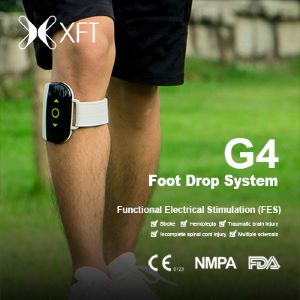Poster
Dimensions of Pre-Injury Personality and Coping Style in Individuals with Moderate to Severe TBI
Tuesday, October 31, 2023
3:25 PM - 3:31 PM
Location: Station 8
.jpg)
Amanda R. Rabinowitz, PhD
Associate Director
Moss Rehabilitation Research Institute
Philadelphia, Pennsylvania, United States
Presenting Author(s)
Research Objectives: To characterize dimensions of pre-injury personality and coping style in individuals with moderate to severe traumatic brain injury (TBI) and evaluate their relationship to TBI outcomes.
Design: Observational study of individuals with acute moderate-severe TBI with 6-month telephone follow-up.
Setting: Inpatient Rehabilitation
Participants: 62 individuals with moderate to severe TBI assessed during inpatient rehabilitation, and by telephone 6-months later. Eligible participants were aged 18-80 years and had sustained an msTBI as evidenced by a one or more of the following: GCS score < 13, loss of consciousness >= 60 minutes, post-traumatic amnesia (PTA) of at least 24 hours, and/or positive findings on neuroimaging.
Interventions: None.
Main Outcome Measures: After emergence from PTA, participants completed an interview reporting on their general behavior and personality prior to their injury, including measures of optimism, hope, resilience, grit, positive and negative affect, sense of coherence and coping style. We subjected the summary scores from these measures to a principal components analysis (PCA) and examined the relationship of these component scores with measures of functional independence (FIM), depression (PHQ-9), anxiety (GAD-7), satisfaction with life (SWLS), self-efficacy (TBI-SE), and perceived stress (PSS).
Results: PCA identified 6 components which explained 70% of the variance in pre-injury personality measures. Item inspection revealed that components could be described as (1) Optimism & Resolve, (2) Emotion Focus, (3) Incoherence, (4) Escapism, (5) Spirituality, and (6) Denial. Separate regression models predicting each of the 6 outcomes (FIM, PHQ-9, GAD-7, SWLS, TBI-SE, PSS) were run. Models predicting FIM (F=2.547; p=0.037; R2=0.30) and TBI-SE (F=2.586; p=0.035, R2=0.30) were significant.
Conclusions: We derived a factor structure for summarizing pre-injury personality factors in a sample with acute moderate to severe TBI. Our findings suggest that these factors are associated with TBI outcomes and may be influential in TBI recovery.
Author(s) Disclosures: none
Design: Observational study of individuals with acute moderate-severe TBI with 6-month telephone follow-up.
Setting: Inpatient Rehabilitation
Participants: 62 individuals with moderate to severe TBI assessed during inpatient rehabilitation, and by telephone 6-months later. Eligible participants were aged 18-80 years and had sustained an msTBI as evidenced by a one or more of the following: GCS score < 13, loss of consciousness >= 60 minutes, post-traumatic amnesia (PTA) of at least 24 hours, and/or positive findings on neuroimaging.
Interventions: None.
Main Outcome Measures: After emergence from PTA, participants completed an interview reporting on their general behavior and personality prior to their injury, including measures of optimism, hope, resilience, grit, positive and negative affect, sense of coherence and coping style. We subjected the summary scores from these measures to a principal components analysis (PCA) and examined the relationship of these component scores with measures of functional independence (FIM), depression (PHQ-9), anxiety (GAD-7), satisfaction with life (SWLS), self-efficacy (TBI-SE), and perceived stress (PSS).
Results: PCA identified 6 components which explained 70% of the variance in pre-injury personality measures. Item inspection revealed that components could be described as (1) Optimism & Resolve, (2) Emotion Focus, (3) Incoherence, (4) Escapism, (5) Spirituality, and (6) Denial. Separate regression models predicting each of the 6 outcomes (FIM, PHQ-9, GAD-7, SWLS, TBI-SE, PSS) were run. Models predicting FIM (F=2.547; p=0.037; R2=0.30) and TBI-SE (F=2.586; p=0.035, R2=0.30) were significant.
Conclusions: We derived a factor structure for summarizing pre-injury personality factors in a sample with acute moderate to severe TBI. Our findings suggest that these factors are associated with TBI outcomes and may be influential in TBI recovery.
Author(s) Disclosures: none
Learning Objectives:
- Describe retrospective pre-injury assessment of personality traits in individuals with moderate to severe TBI.
- List pre-injury personality factors and coping styles that are associated with TBI outcomes.
- Describe how principal components analysis is used to understand the underlying structure of related constructs in data analysis.

.jpg)
